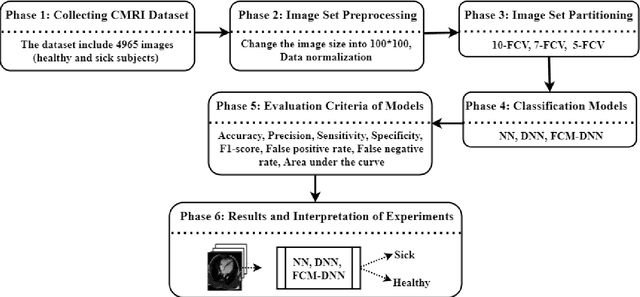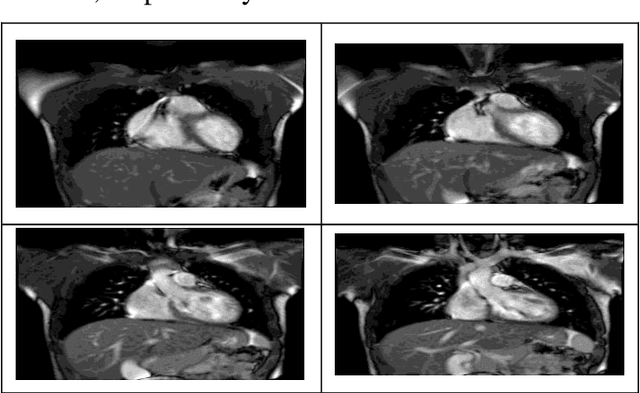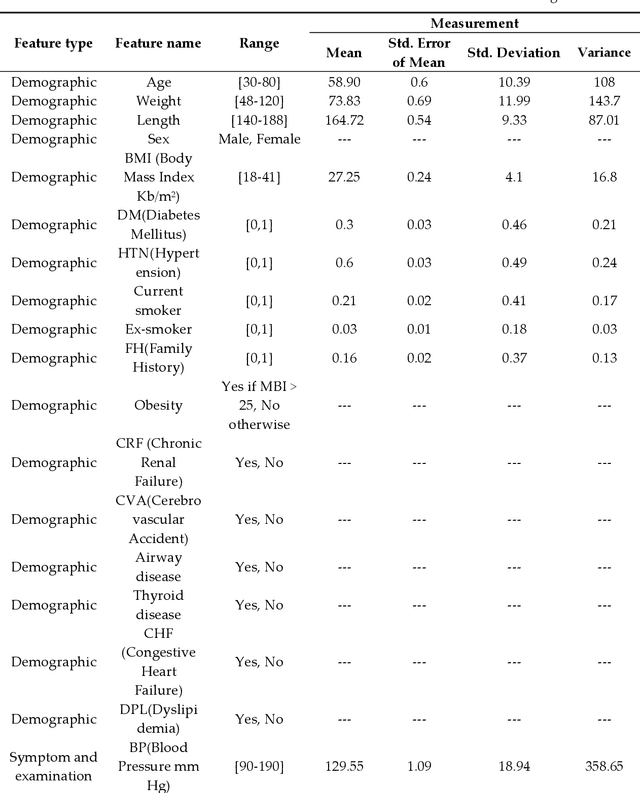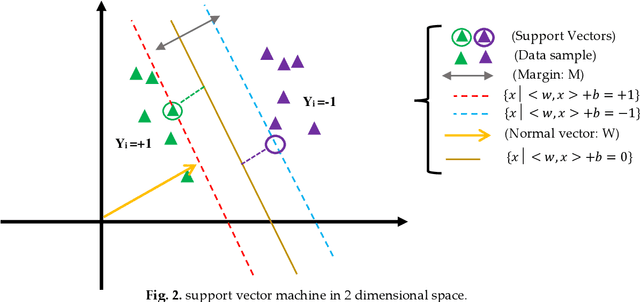Hamid Saadatfar
FCM-DNN: diagnosing coronary artery disease by deep accuracy Fuzzy C-Means clustering model
Feb 28, 2022



Abstract:Cardiovascular disease is one of the most challenging diseases in middle-aged and older people, which causes high mortality. Coronary artery disease (CAD) is known as a common cardiovascular disease. A standard clinical tool for diagnosing CAD is angiography. The main challenges are dangerous side effects and high angiography costs. Today, the development of artificial intelligence-based methods is a valuable achievement for diagnosing disease. Hence, in this paper, artificial intelligence methods such as neural network (NN), deep neural network (DNN), and Fuzzy C-Means clustering combined with deep neural network (FCM-DNN) are developed for diagnosing CAD on a cardiac magnetic resonance imaging (CMRI) dataset. The original dataset is used in two different approaches. First, the labeled dataset is applied to the NN and DNN to create the NN and DNN models. Second, the labels are removed, and the unlabeled dataset is clustered via the FCM method, and then, the clustered dataset is fed to the DNN to create the FCM-DNN model. By utilizing the second clustering and modeling, the training process is improved, and consequently, the accuracy is increased. As a result, the proposed FCM-DNN model achieves the best performance with a 99.91% accuracy specifying 10 clusters, i.e., 5 clusters for healthy subjects and 5 clusters for sick subjects, through the 10-fold cross-validation technique compared to the NN and DNN models reaching the accuracies of 92.18% and 99.63%, respectively. To the best of our knowledge, no study has been conducted for CAD diagnosis on the CMRI dataset using artificial intelligence methods. The results confirm that the proposed FCM-DNN model can be helpful for scientific and research centers.
Coronary Artery Disease Diagnosis; Ranking the Significant Features Using Random Trees Model
Jan 16, 2020



Abstract:Heart disease is one of the most common diseases in middle-aged citizens. Among the vast number of heart diseases, the coronary artery disease (CAD) is considered as a common cardiovascular disease with a high death rate. The most popular tool for diagnosing CAD is the use of medical imaging, e.g., angiography. However, angiography is known for being costly and also associated with a number of side effects. Hence, the purpose of this study is to increase the accuracy of coronary heart disease diagnosis through selecting significant predictive features in order of their ranking. In this study, we propose an integrated method using machine learning. The machine learning methods of random trees (RTs), decision tree of C5.0, support vector machine (SVM), decision tree of Chi-squared automatic interaction detection (CHAID) are used in this study. The proposed method shows promising results and the study confirms that RTs model outperforms other models.
 Add to Chrome
Add to Chrome Add to Firefox
Add to Firefox Add to Edge
Add to Edge